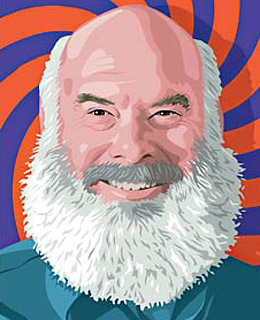
When he was a senior at Harvard Medical School in 1968, Andrew Weil published a study on marijuana use that concluded, among other things, that first-time users "did not get an impressive pharmacological response." The powers that be were not amused. Harvard threatened to withhold his medical degree, and in a speech, U.S. Vice President Spiro Agnew ridiculed a national newspaper for publishing Weil's studies.
Fast-forward 36 years and Weil, now 62, not only has a Harvard M.D. but has become internationally famous, with a newsletter, a website and a string of best-selling self-help books. With his kindly eyes, fluffy beard, shiny pate and cherubic expression, he has become, for millions, the face of alternative medicine.
Or, as Weil prefers to call it, integrative medicine: blending Western medicine with herbal healing and lifestyle changes. Indeed, what distinguishes Weil from other popular healers is his grounding in hard science and his intellectual flexibility. If you have an inflamed appendix, he advises, go see a surgeon; black cohosh won't work. But if you want to fight your acne with diet or get the real skinny on vitamin E, a quick trip to drweilselfhealing.com will get you what you need.
The medical establishment is still uncomfortable with him. His Harvard mentor, Dr. Arnold Relman, professor emeritus and former editor of the New England Journal of Medicine, complains that Weil has stopped publishing research to support his claims. But Weil has better — and more remunerative — things on his mind. His next book, Growing Old Gracefully, which takes aim at anti-aging drugs and the life-extension industry is due in October.
Dr. Gupta is a neurosurgeon and CNN medical correspondent
From the Archive
Mr. Natural: Millions of Americans swear by the alternative medicine of Dr. Andrew Weil. But is anybody really getting better?